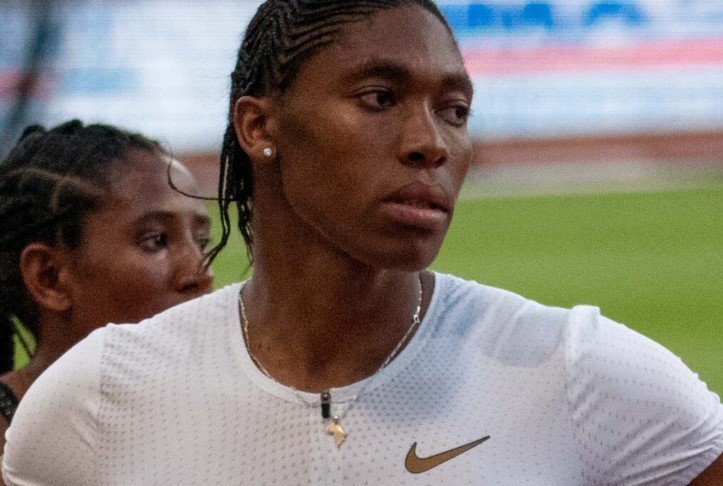Texas Attorney General Ken Paxton has filed a lawsuit against the NCAA, accusing the organization of misleading fans and endangering women’s safety by allowing transgender athletes to participate in women’s sports.
Ken Paxton, the Texas Attorney General, has raised a legal challenge against the NCAA over the inclusion of transgender athletes in women’s sports. The lawsuit, filed Sunday, accuses the college sports organization of deceiving fans and violating state law by permitting transgender women to compete in events marketed exclusively to female athletes. Paxton’s move has sparked a renewed debate over the participation of transgender athletes in sports, a topic that has increasingly become a political lightning rod.
A Legal Challenge Over Transparency and Safety
In his lawsuit, Paxton alleges that the NCAA’s actions have violated the Texas Deceptive Trade Practices Act. According to Paxton, the NCAA is misleading fans who attend or watch these sporting events under the belief that they are supporting competitions for athletes who are biologically female. By allowing transgender women to compete in women’s sports, Paxton claims the organization is misrepresenting the nature of the events and failing to disclose the gender identity of participants.

The lawsuit specifically takes issue with what Paxton views as the lack of transparency regarding which athletes are transgender. He argues that the NCAA has not made it clear when athletes in women’s competitions are transgender, undermining the integrity of the events. Paxton is also concerned about the physical safety of female athletes, suggesting that the inclusion of transgender women, who may have physical advantages, poses a risk to the wellbeing of cisgender women in these sports.
Paxton’s Call for Action: Limit Transgender Participation
Paxton is asking the court to impose significant restrictions on the NCAA’s policies regarding transgender athletes in Texas. Specifically, he seeks a ruling that would either bar transgender women from competing in NCAA events held in Texas or involving Texas teams, or compel the NCAA to stop branding certain competitions as “women’s sports” when transgender women are allowed to participate.
“Radical ‘gender theory’ has no place in college sports,” Paxton said in a statement following the lawsuit’s filing, emphasizing his belief that transgender women should not be allowed to compete in women’s sports. His remarks are consistent with the broader political push from some Republican leaders who have sought to limit transgender rights, particularly in the realm of sports.
The lawsuit has sparked reactions from various corners, with many watching closely to see how the courts will respond. Paxton’s push follows a growing trend of legal battles and political campaigns aimed at restricting transgender athletes’ participation in sports, particularly those involving women.
NCAA Responds: Focus on Title IX and Fair Competition
The NCAA, however, has yet to directly address the specific allegations in the lawsuit. Instead, the organization issued a statement reaffirming its commitment to supporting women’s sports. Michelle Brutlag Hosick, the NCAA’s communications director, emphasized that the association remains dedicated to promoting Title IX and ensuring fair competition across all NCAA championships.
“The Association and its members will continue to promote Title IX, make unprecedented investments in women’s sports, and ensure fair competition in all NCAA championships,” Hosick stated. This response highlights the NCAA’s ongoing efforts to support women’s sports while balancing the inclusion of transgender athletes.
Interestingly, NCAA President Charlie Baker, who recently faced intense scrutiny over this issue, indicated in a Senate Judiciary Committee hearing that fewer than ten transgender athletes participate in NCAA events. This statistic has done little to quell the controversy, as critics of transgender inclusion argue that even a small number of transgender athletes could have an outsized impact on competition in women’s sports.
Political and Cultural Pushback
The legal battle between Paxton and the NCAA is part of a wider cultural and political conflict surrounding the inclusion of transgender athletes in competitive sports. Many Republican lawmakers have made this issue a priority, with the topic gaining prominence during the 2024 election cycle. In fact, numerous Republican candidates aired political ads stressing their opposition to the participation of transgender women in women’s sports.
The controversy has also led some Democratic candidates to shift their stance, particularly in states where transgender rights are a hot-button issue. While some have continued to advocate for the rights of transgender athletes, others have distanced themselves from the issue in an effort to appeal to more moderate voters.
This clash between political parties and within the public sphere is intensifying, with both sides gearing up for what promises to be a prolonged fight over how transgender athletes are treated in sports.
Broader Implications: Federal Policy and the Biden Administration
The lawsuit also plays into the broader context of federal policy regarding transgender athletes. Just days before Paxton filed his lawsuit, the Biden administration withdrew a proposed rule that would have provided more flexibility for schools in regulating transgender athletes under Title IX of the Civil Rights Act. The rule, which had garnered significant debate, would have allowed some restrictions on transgender athletes while still preserving their ability to participate in school sports.
The withdrawal of the proposed rule followed a wave of public comments and legal challenges, indicating how divisive the issue has become on a national level. The debate shows no signs of slowing down, with numerous states, organizations, and individuals weighing in on the matter.

Comments